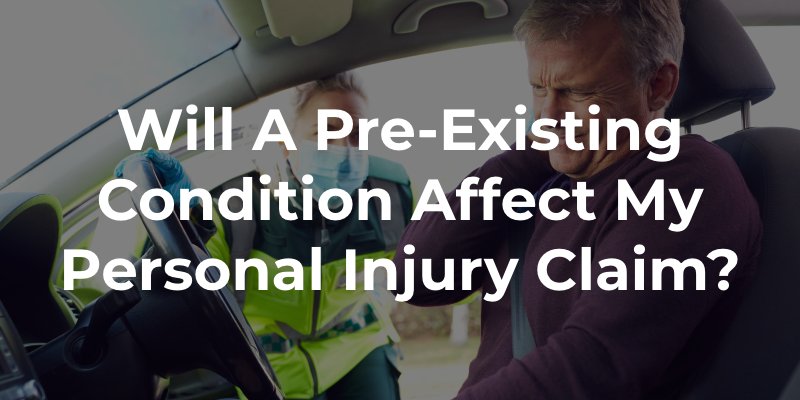Our attorneys have been assisting the Orange County and Southern California communities for over 40 years.
The legal truth: Pre-existing conditions should never affect your personal injury claim.
The reality: Pre-existing conditions affect the outcome of personal injury claims all the time.
As we review preexisting conditions, as well as some of the most common preexisting conditions that affect injury claims, we strongly encourage you to speak to an Orange County personal injury attorney if you have been harmed because of someone else’s actions. All too often, individuals with non-related pre-existing conditions see their insurance settlements slip away. Don’t let that happen to you.

A pre-existing condition is any health issue or injury that existed before a new incident or accident occurred. These conditions can range from chronic illnesses like arthritis to previous injuries such as a back injury from a car accident. When it comes to personal injury claims, insurance companies and defense attorneys often focus on pre-existing conditions to reduce the compensation owed to the claimant.
However, having a pre-existing condition does not mean you are ineligible for compensation if you are injured due to someone else’s negligence. The key is how the pre-existing condition was impacted by the new injury. If the accident worsened or “aggravated” your pre-existing condition, you are entitled to seek compensation for the new harm caused.
Insurance companies and at-fault parties often use pre-existing conditions as a tactic to minimize or deny compensation. They may argue that your pain, suffering, or medical issues are not related to the accident in question but are instead due to a pre-existing condition. This is done to seed doubt and reduce the payout to the injured party. Here are some common strategies used:
The “eggshell plaintiff” doctrine is a legal principle that plays a critical role in personal injury cases involving pre-existing conditions. According to this doctrine, defendants must “take their victims as they find them.” This means that if an individual has a pre-existing condition that makes them more susceptible to injury, the defendant is still fully liable for any injuries caused by their negligence, even if the injuries are more severe due to the pre-existing condition.
For example, if you had a back injury from a previous incident and were involved in a car accident that worsened your back condition, the at-fault party could still be liable for the full extent of the new damages, not just the portion attributable to the pre-existing injury.
Several common pre-existing conditions often come up in personal injury claims, particularly when insurance companies attempt to minimize payouts. Some of these include:
Protecting your claim when you have a pre-existing condition requires proactive steps and a clear strategy:
Contact our firm today for a free consultation.